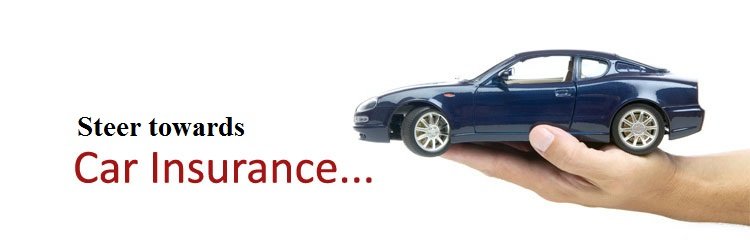Car Insurance Basics
Car insurance is an important asset to protect you financially. All states but New Hampshire require car owners to show that they are financially able to cover liability costs and most states require a car insurance as a proof. In New Hampshire, the driver is required to prove their financial ability after an accident occurs.

The car insurance offers three main areas of coverage:
- Property coverage that pays for damages to the car or theft;
- Liability coverage guarantees the legal responsibility of the policy owner to pay for bodily injury or property damage to the other party in the accident;
- Medical coverage is for costs incurred after treating injuries, rehabilitation or in the case of death – for funeral expenses.
Actually, there are six types of auto insurance coverages, some of which are required, while others are optional. There are some extras as well, that the car owner can select. Below, you can see more details about the different coverages.
Bodily injury liability
The coverage pays for injuries caused to a person by the policyholders or members of their family, who are included in the policy. The policyholders are also covered in case they drive someone else’s car with permission. There is a state required minimum of the bodily injury liability, but the car owner can choose to buy a higher coverage, which will be useful in case they are sued for large amounts after an accident.
Property damage liability
The coverage is used in case the policyholder or someone driving their car with permission causes damage to another person’s property. In most of the cases this is damage to the car of this person, however, the property damage liability also covers damages to buildings, fences, lamp posts, telephone poles or other structures that are caused as a result of driving accident.
Medical payments (MedPay) or Personal Injury Protection (PIP)
This coverage is for treatment of injuries of the driver and the passengers in the car of the policyholder. PIP covers medical costs, lost wages or payment for services that are normally performed by the injured person. It can also cover funeral costs.
Collision
The coverage reimburses for any damage caused to the vehicle of the policyholder as a result of a collision. The collision may be with another car or a different object/construction. The damages sustained after flipping over or as a result of potholes are also covered. Collision coverage usually has a deductible in the range of $250 to $1,000. The premium decreases with the increase of the deductible amount. This coverage is used by the policyholder even if they are at fault for the accident that resulted in a damage. In this case, they got reimbursement for the amount for the repair of the car minus the deductible. If the other driver was at fault for the accident, the insurance company may try to recover the amount paid by the other person’s insurance. In this case, the policyholder will be reimbursed for the amount of the deductible as well.
Comprehensive
This coverage pays for any damage to the vehicle that is caused by a reason different than a collision with another car or object/construction. This includes natural disasters as well such as earthquakes, hail, flood, windstorm, etc. It also covers the car in cases of fire, falling objects, contact with animals, riots or vandalism. The comprehensive coverage reimburses the policyholder in case of theft of the car. The insurance is usually sold with a $100 or $300 deductible, but the car owner may choose a higher amount, which will lower their premium. In case your windshield is cracked or shattered, you will also be reimbursed by this coverage.
Uninsured/Underinsured motorists coverage (UM/UIM)
This coverage pays for the damages in case the policyholder, their family or a driver who is driving their car with permission, are hit by uninsured or a hit-and-run driver. If the driver, who caused the accident, has insufficient insurance to pay for all the losses, the UIM is used. It also protects the policyholder in case they are hit by a car as a pedestrian.
Extras
You can include different extras in your car insurance like roadside assistance, for example. Keep in mind that if you request towing, it will go down as a claim on your record as well.
Another popular extra is the rental reimbursement, which covers the costs in case your rental car gets damaged or stolen.
Knowing the different types of car insurance coverages and what they pay for is essential for making the right decision what to include in your own insurance. It is also important in case you are the person who has suffered the accident and didn’t cause it – thus, you will know what kind of reimbursement you can expect from the other party. Note that states do not require that a car owner has a collision or comprehensive coverage. If you have taken a loan for your car, though, the lender may require them until the loan is paid off.





